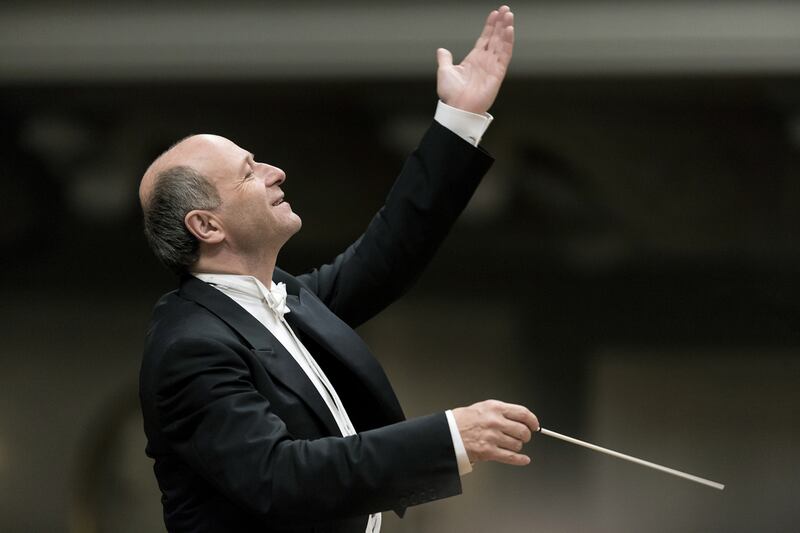Looking at the facts and figures behind the Abu Dhabi Festival production of Mozart's The Magic Flute, you'd think the Budapest Festival Orchestra was staging the Olympics, not an opera.
For each of the two performances being staged at Emirates Palace on Saturday and Monday, the production will use 8,400 kilograms of equipment, 120,000 watts of lights, power cables that could easily cover a Formula One track and enough trusses to stretch across four football pitches.
All this sounds a little, well, operatic – but the work being staged is, in fact, one of the lightest, more deliciously fanciful works in the opera repertoire. Thematically, it contains both complex symbolism and some of the most catchy, instantly recognisable tunes in classical music.
As Ivan Fischer, BFO's founder and director says, The Magic Flute is a brilliant balancing act.
"Fortunately, the author of The Magic Flute's libretto, Emanuel Schikaneder, was an experienced and clever theatre personality," he says. "He knew extremely well how to incorporate complicated ideas but still make it accessible to anybody.
"The Magic Flute has many layers … fairy tale, philosophy, enlightenment, Freemasonry and a glorification of the magical power of music. It sounds complex, but it is perfectly organic."
The piece is a great choice for the BFO, an ensemble that has developed a reputation for being a particularly skilful opera collaborator. Founded in 1983, the orchestra has consistently punched above its weight, winning accolades and awards for its recordings and being recognised by Gramophone magazine as one of the world's 10 best ensembles.
Fischer says part of this strength comes from the BFO’s sense of being a small orchestra working with a big repertoire.
“I mainly imagined an orchestra in which everybody plays with involvement and enthusiasm – like chamber musicians,” he says. “I had the ambition to found a new orchestra with an idealistic mentality, which would give new meaning to this type of music-making.”
Fischer’s professional experience has shaped the orchestra’s direction in some unexpected ways. In the past few decades, he has developed a strong reputation as a composer, having written and staged operas. This may have had a hand in guiding him towards a style in which he imbues opera-conducting with “a higher level of drama, lyricism and a sense of surprise”.
“Since I started composing, I have completely changed as a conductor,” he says. “Probably, earlier I was more interested in perfection and now I am more interested in finding and sharing the feeling, which made the composer right – whatever he did.”
This is vital, no doubt, but for The Magic Flute to really sing, as it were, you need more than an excellent orchestra. When it first appeared, the piece was characterised as a singspiel – a genre typically laden with impressive visual effects that includes more spoken dialogue than the average opera.
Within its story of good and evil battling each other in complicated disguises, Mozart gave delightful singing scores to some of the most approachable characters in opera – in particular, Papageno, the bird-catcher and servant of the dastardly Queen of the Night.
German baritone Hanno Müller-Brachmann, who plays the character in the BFO’s production, precisely pinpoints the character’s charm – in a story of noble-born knights and royalty, he is essentially Papageno from the block.
“Papageno is like everybody from the audience,” says Müller-Brachmann. “Everyone can see part of themselves onstage and can identify, so this is a normal human being.
"There's a historical significance at work here, too. The Magic Flute was written at the time of the French Revolution, and just at that moment we now had a servant onstage as a main person – in an opera this was really brand new.
“This is why Mozart really is my favourite. He really understands and has a deep love of ordinary human beings – and you can feel this love ringing out in every bar of the music.”
• The Magic Flute, performed by the Budapest Festival Orchestra, is at Emirates Palace on Saturday, March 28, and Monday, March 30, at 8pm each night. Tickets start at Dh125 and are available at www.timeouttickets.com
[ artslife@thenational.ae ]





